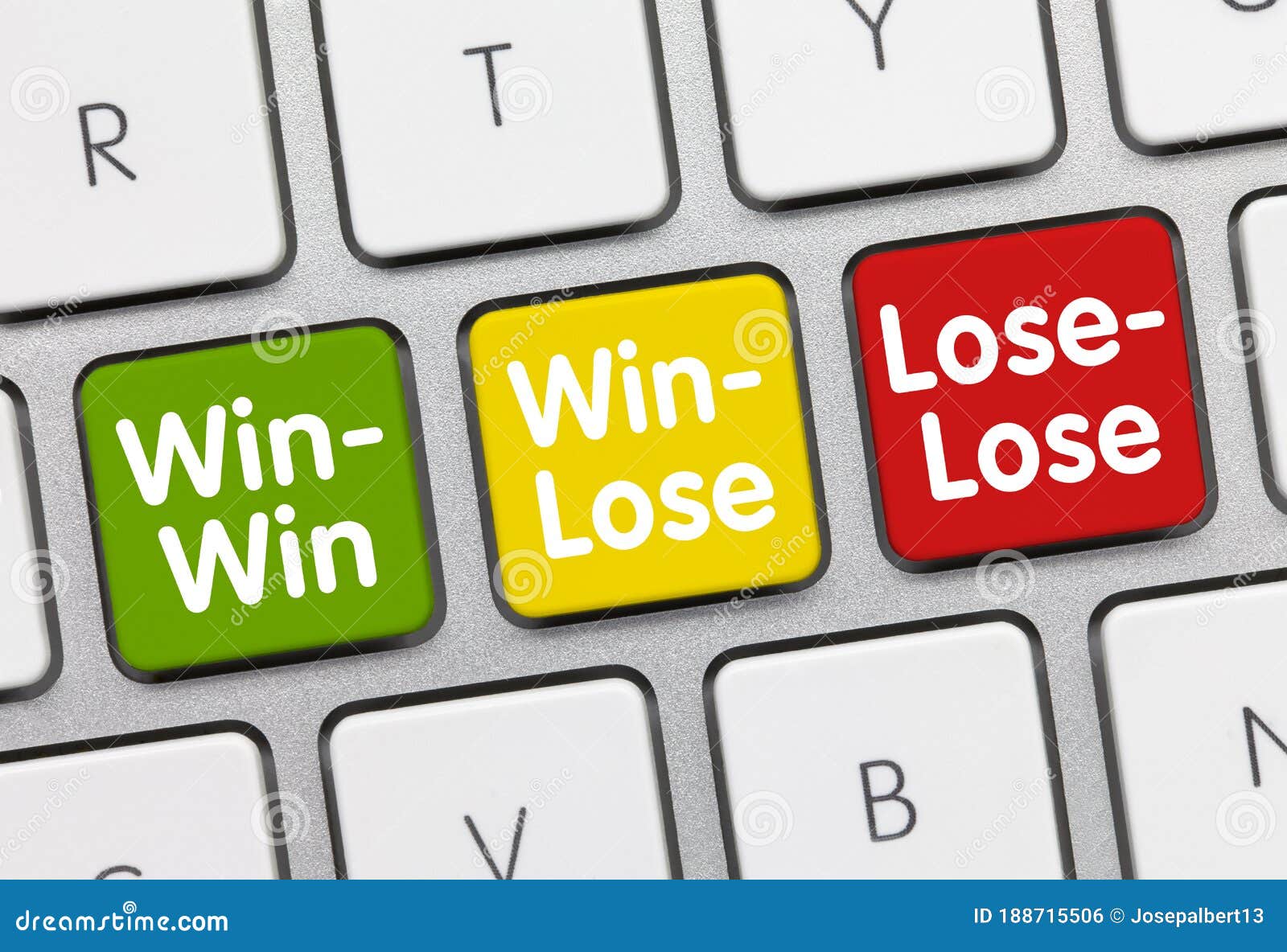In the journey of life, the concepts of win or lose shape our experiences, decisions, and growth. Whether in business, sports, relationships, or personal development, these two outcomes define our path. Success and failure are inevitable parts of life that teach valuable lessons and push us toward improvement.
Understanding the dynamics of winning and losing is crucial to building resilience and achieving long-term success. This article delves deep into the philosophy behind both outcomes, exploring how they influence our mindset and decision-making processes. We'll examine real-life examples, expert insights, and actionable strategies to help you embrace both sides of the equation.
By the end of this comprehensive guide, you'll gain a clearer perspective on how to handle success and failure constructively. Our goal is to equip you with the knowledge and tools necessary to turn every outcome—win or lose—into an opportunity for growth and development.
- Sdmoviespointcom Your Ultimate Destination For Highquality Movies
- Steve Howey A Comprehensive Look Into The Life And Career Of The Talented Actor
Table of Contents
- Understanding the Concept of Win or Lose
- The Mindset Behind Winning and Losing
- Psychology of Success and Failure
- Historical Perspective on Win or Lose
- Win or Lose in the Business World
- Win or Lose in Sports
- Win or Lose in Relationships
- Personal Growth Through Win or Lose
- Strategies to Handle Win or Lose
- Conclusion: Embracing the Journey
Understanding the Concept of Win or Lose
The phrase "win or lose" encapsulates the essence of life's challenges and triumphs. It represents the binary outcomes we face daily, yet its meaning extends far beyond mere success or failure. At its core, this concept reflects the process of striving, learning, and evolving.
Key aspects:
- Winning signifies achievement, progress, and fulfillment.
- Losing represents setbacks, learning opportunities, and growth catalysts.
- Both outcomes are integral parts of personal and professional development.
Experts in psychology and leadership emphasize that viewing win or lose as complementary rather than opposing forces leads to a more balanced approach to life. This perspective encourages resilience and adaptability, essential traits for long-term success.
- Sdmoviespoint Download Your Ultimate Guide To Downloading Movies Safely And Legally
- Hd4u Movie Download Your Ultimate Guide To Legal Streaming And Downloads
Defining Success and Failure
Success and failure are subjective terms that vary across cultures, industries, and individuals. For some, success may mean financial prosperity, while for others, it could represent personal fulfillment or meaningful relationships. Similarly, failure isn't always negative—it can serve as a stepping stone toward greater achievements.
Data from the Harvard Business Review indicates that 70% of entrepreneurs who experience failure go on to achieve greater success in subsequent ventures. This statistic underscores the importance of reframing our perception of loss as an integral part of the journey.
The Mindset Behind Winning and Losing
A growth mindset plays a crucial role in how we perceive win or lose scenarios. Carol Dweck, a renowned psychologist, highlights the difference between fixed and growth mindsets in her research. Individuals with a growth mindset view challenges as opportunities for learning, while those with a fixed mindset may perceive failure as a reflection of their abilities.
Characteristics of a Growth Mindset
Adopting a growth mindset involves embracing the following principles:
- Believing in the power of effort and persistence.
- Viewing criticism as constructive feedback.
- Seeking inspiration from others' successes rather than feeling threatened.
Studies published in the Journal of Positive Psychology demonstrate that people with growth mindsets are more likely to recover from setbacks and achieve their goals over time. This mindset shift transforms the concept of losing into a valuable learning experience.
Psychology of Success and Failure
Understanding the psychological aspects of win or lose requires examining how our brains process these outcomes. Neuroscientific research reveals that winning activates the brain's reward system, releasing dopamine and creating a sense of pleasure. Conversely, losing triggers the amygdala, the brain's fear center, leading to feelings of disappointment or anxiety.
Key insights:
- Reframing failure as a learning experience reduces its emotional impact.
- Practicing gratitude and mindfulness enhances resilience in the face of setbacks.
- Developing emotional intelligence helps manage the highs and lows of success and failure.
According to the American Psychological Association, individuals who cultivate emotional resilience are better equipped to handle both winning and losing experiences. This psychological preparedness contributes to long-term well-being and success.
Historical Perspective on Win or Lose
Throughout history, societies have grappled with the concepts of success and failure, shaping cultural narratives and philosophies. Ancient civilizations such as Greece and Rome celebrated victories in battle and athletics while viewing defeats as opportunities for reflection and improvement.
Notable examples:
- Alexander the Great's conquests demonstrated the importance of strategic thinking and adaptability.
- Thomas Edison's numerous failed experiments led to groundbreaking innovations, proving that persistence outweighs temporary setbacks.
- Winston Churchill's famous quote, "Success is not final, failure is not fatal: It is the courage to continue that counts," encapsulates the enduring spirit of resilience.
Historical figures and events provide valuable lessons on how to approach win or lose scenarios with grace and determination. Their stories inspire us to persevere through challenges and embrace both outcomes as part of the journey.
Win or Lose in the Business World
In the competitive landscape of business, the concepts of win or lose take center stage. Entrepreneurs and corporate leaders face constant pressure to achieve success while managing the risks of failure. Understanding this dynamic is crucial for sustainable growth and innovation.
Key Strategies for Business Success
To navigate the complexities of win or lose in business, consider the following approaches:
- Set clear, measurable goals to track progress and evaluate outcomes.
- Encourage a culture of experimentation and calculated risk-taking.
- Learn from competitors' successes and failures to inform your own strategies.
Research from McKinsey & Company shows that companies embracing failure as part of their innovation process are more likely to achieve long-term success. This mindset shift fosters creativity and resilience within organizations.
Win or Lose in Sports
Sports provide a tangible example of the win or lose paradigm, where athletes and teams experience immediate feedback on their performance. While winning is often celebrated, losing offers valuable lessons that contribute to overall improvement.
Lessons from Athletes
Elite athletes share insights on handling success and failure:
- Michael Jordan famously said, "I've failed over and over and over again in my life, and that is why I succeed."
- Serena Williams attributes her success to perseverance and learning from past defeats.
- Tom Brady emphasizes the importance of focusing on the process rather than the outcome.
These athletes demonstrate that embracing failure is key to achieving greatness in sports and beyond.
Win or Lose in Relationships
Interpersonal relationships also reflect the win or lose dynamic, where compromise and understanding play vital roles. Whether in romantic partnerships, friendships, or professional collaborations, finding balance between individual needs and collective goals is essential.
Key tips:
- Practice active listening to better understand others' perspectives.
- Focus on win-win solutions rather than zero-sum outcomes.
- Cultivate empathy and emotional intelligence to strengthen connections.
Research from the Gottman Institute highlights that successful relationships prioritize mutual respect and understanding, even when disagreements arise. This approach fosters long-term harmony and fulfillment.
Personal Growth Through Win or Lose
On a personal level, embracing both success and failure contributes to holistic development. Each experience offers unique insights and opportunities for learning, helping individuals grow into more resilient and well-rounded people.
Practical Steps for Growth
To harness the power of win or lose for personal development:
- Keep a journal to reflect on experiences and identify patterns.
- Set SMART goals to measure progress and celebrate achievements.
- Seek mentorship and guidance from experienced individuals.
Psychological studies suggest that individuals who adopt a reflective approach to life's outcomes tend to experience greater satisfaction and fulfillment. This mindset shift transforms challenges into stepping stones for growth.
Strategies to Handle Win or Lose
Equipping yourself with effective strategies for handling success and failure ensures you maintain balance and perspective throughout life's journey. Here are actionable tips to help you navigate these experiences:
Building Resilience
- Practice mindfulness techniques to manage stress and anxiety.
- Develop a support network of friends, family, and mentors.
- Focus on continuous learning and skill development.
By incorporating these strategies into your daily routine, you'll cultivate the resilience necessary to handle both winning and losing experiences with grace and determination.
Conclusion: Embracing the Journey
In conclusion, the concepts of win or lose represent the fundamental experiences that shape our lives. By adopting a balanced perspective and embracing both outcomes as opportunities for growth, we can achieve lasting success and fulfillment. This comprehensive guide has explored the psychology, history, and practical applications of handling success and failure effectively.
We invite you to share your thoughts and experiences in the comments section below. Your insights contribute to a richer understanding of how to navigate life's challenges and triumphs. Additionally, explore other articles on our platform for more valuable resources and strategies to enhance your personal and professional development.
- Tara Palmeri Wedding A Comprehensive Guide To The Glamorous Event
- Is Cedric The Entertainer Still Alive Exploring The Life And Legacy Of A Comedy Icon


